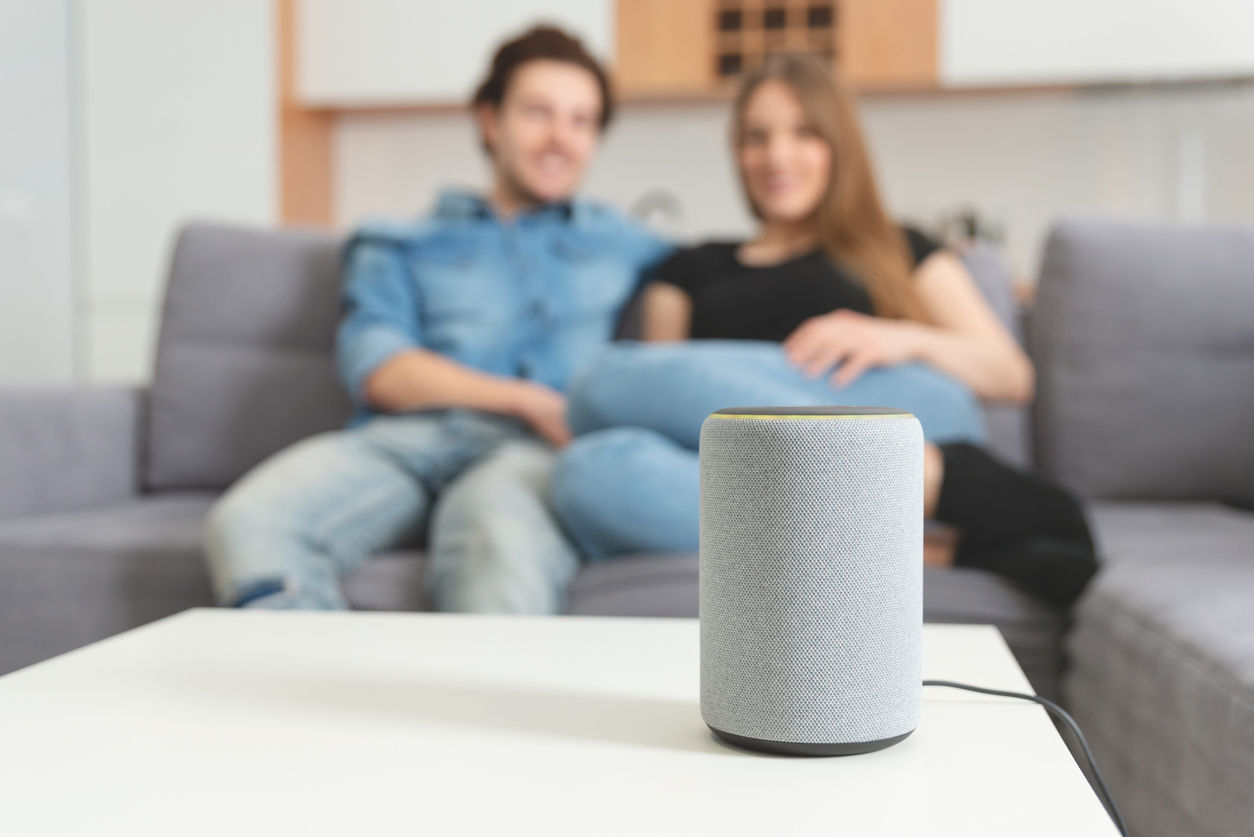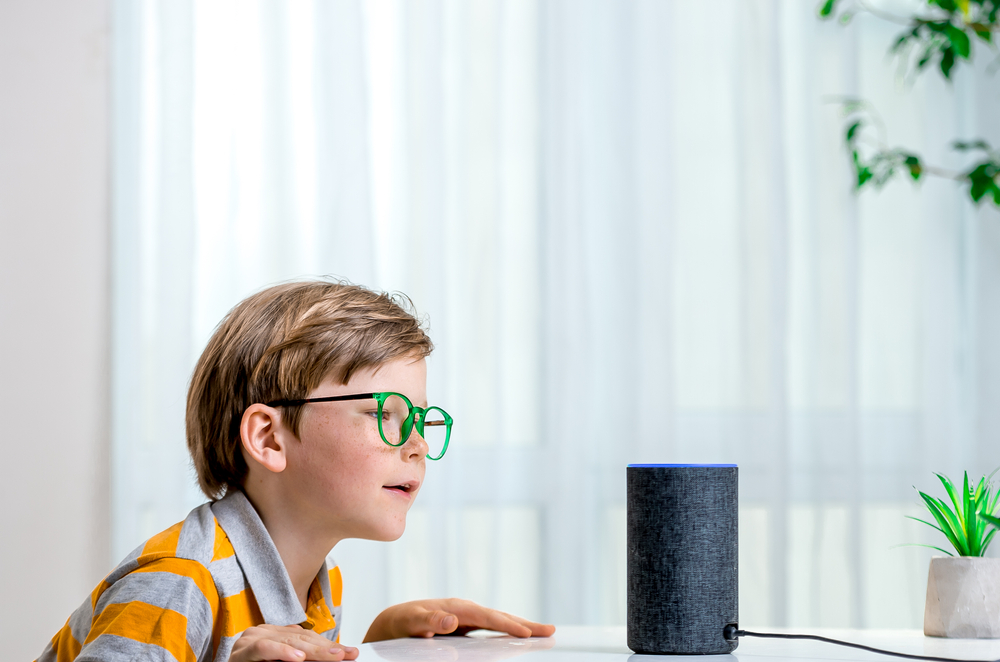Is it not convenient to be able to control your lights, play your favorite music, or even make a phone call, all with your voice? Yes, yes, this is indeed the reality, thanks to voice assistants like Alexa and Google Home. These intelligent devices have revolutionized the way we interact with technology, offering us an unprecedented experience of convenience and control.
Smart voice assistants are now an integral part of our daily lives. We use them for everything from playing music to setting alarms to controlling our smart devices. But one question remains:
Are these devices really listening to us?
The short answer is yes.
On the one hand, it is undeniable that voice assistants bring us many benefits. They allow us to save time, be more productive, and enjoy a more connected home environment. In addition, the companies that develop these technologies claim that they are committed to protecting our privacy and that the data collected is only used to improve services.
To function, voice assistants use built-in microphones to constantly capture ambient noise. They are equipped with “wake word detection” technology, which allows them to recognize their wake word (such as “Alexa” or “Ok Google”) and only start recording and processing information when they are activated. However, it is important to note that recordings are not stored permanently.

For Alexa, Amazon only stores recordings that you have explicitly asked to be recorded, such as interactions with Alexa Routines. You can also review and delete your voice recordings at any time.
While Google Home only stores voice recordings after you say “Ok Google”. You can disable voice recording and delete your recordings at any time.
In addition, voice recordings captured by voice assistants are stored on the servers of the respective companies. They are then analyzed using artificial intelligence (AI) to understand our requests and respond to them. Theoretically, these recordings should only be used to improve the performance of voice assistants and offer us a more personalized experience.
In light of this information, you are probably wondering if there are any risks to using voice assistants.
While companies claim that our data is processed securely, there are always potential risks associated with using voice assistants. For example, hackers could hack into company servers and steal our voice recordings, resulting in data breaches. Also, through data misuse, companies could use our data for targeted advertising or other purposes without our consent. The government surveillance as well. Governments could force companies to provide them with our voice data, which could be a privacy violation. If you accidentally say sensitive information, such as your address or bank information, it could be recorded.
Real-Life Stories
Murder Caught on Tape
First, in 2019, a murder that occurred in the state of Arkansas in the United States was solved with the help of an Alexa voice assistant. This case, while conclusive for the investigation, raised important questions about privacy and the use of personal data in the digital age. The facts are that on November 22, 2018, James Bates was found shot dead in his home. His wife, Alexa Murrah, was quickly identified as the prime suspect. During the investigation, police discovered that Ms. Murrah’s Alexa voice assistant had recorded conversations that took place in the house on the night of the murder. These recordings revealed heated exchanges between the couple, and Alexa Murrah was heard saying phrases such as “I’m sick of him” and “I’m going to kill him.”
The Fake Hackers
There is also this research, conducted by cybersecurity researchers, which has unveiled critical flaws in Alexa, Amazon’s voice assistant, that could allow hackers to intrude on users’ privacy and steal their sensitive data. By exploiting these vulnerabilities, hackers could install or remove Alexa “skills” on victims’ accounts, giving them full control over the voice assistant’s features. Even more worryingly, these flaws could open the door to access to confidential personal data, such as voice recordings and bank information. In the face of these alarming risks, cybersecurity experts urge Alexa users to regularly delete the voice history recorded on the device. Fortunately, Alexa and Google Assistant offer options to automatically erase these recordings after a defined period, provided that the settings are properly configured.
My Child’s Amazon Cart
We don’t think about it, but our children too. These little human beings who can measure three apples tall could cause serious unforeseen monetary burdens to your wallet. Do you always check what’s in your Amazon cart? Your child may have added something to it… And yes, this is a case that is not impossible to achieve. Think about it, a child would only have to order a doll with the command ”Alexa buy me a doll’!’. As a result, parents will find themselves with unexpected purchases and bills to pay. This story may seem trivial, but if children can imitate us, it is therefore not difficult for them to order an item, or a toy, via the voice assistant.
Fear not!
There are solutions to mitigate these risks, in order to protect your privacy when using voice assistants.
Here are a few:
- Limit use: Use voice assistants only for essential tasks and avoid giving them personal or sensitive information.
- Disable voice history: You can disable voice history in the settings of your voice assistant. This will prevent your voice recordings from being recorded and stored.
- Check privacy settings: Read the companies’ privacy policies carefully before using their voice assistants.
- Be aware of what you say: Avoid saying sensitive information near your device.
- Use a strong wake word: Choose a wake word that is difficult to say accidentally.
- Consider alternatives: There are open source and privacy-friendly voice assistants available, such as Mycroft.

In conclusion,
Voice assistants like Alexa and Google Home offer great convenience, but it’s important to be aware of the potential privacy risks. By taking a few simple precautions, you can minimize these risks and use these devices with confidence.
Remember that you have control over your data. You can choose to limit the use of voice assistants, disable voice history, and change privacy settings to protect your privacy.
Let’s not forget that technology is a tool, and like any tool, it can be used for good or evil. It is up to us to use it responsibly and ensure that it serves our interests rather than compromising them.


